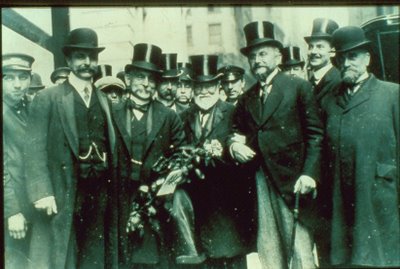
“Two days after financial reform became law, Harry Reid announced that the Senate would not take up comprehensive energy-reform legislation for the rest of the year. And so climate change joined immigration, job creation, food safety, pilot training, veterans’ care, campaign finance, transportation security, labor law, mine safety, wildfire management, and scores of executive and judicial appointments on the list of matters that the world’s greatest deliberative body is incapable of addressing. Already, you can feel the Senate slipping back into stagnant waters.“
Come Senators, Congressmen, please heed the call: In a decent companion piece to James Fallows’ foray on the subject earlier this year, The New Yorker‘s George Packer tries to figure out what the hell is wrong with the Senate. And one of the best answers is buried in the middle of the piece: “Nothing dominates the life of a senator more than raising money. Tom Harkin, the Iowa Democrat, said, ‘Of any free time you have, I would say fifty per cent, maybe even more,” is spent on fund-raising.’“
The other big and much-needed solution: Filibuster reform. But with a handful of Democratic Senators already balking at the idea, that’ll be a tough climb this coming January, and no mistake. Nonetheless, it is very much a fight worth having. “[O]ver the past few decades the reflex has grown in the Senate that, all things considered, it’s better to avoid than to take on big issues. This is the kind of thing that drives Michael Bennet nutty: here you’ve arrived in the United States Senate and you can’t do fuck-all about the destruction of the planet.“




